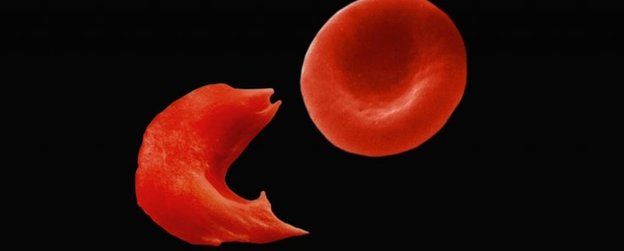Grajevis Bakatunkanda’s mother knew the signs: when her son lost interest in dinner, that meant the pain was on its way. It would strike, like clockwork, nearly every week. Soon the shy, skinny boy would be at the hospital near their home in the Democratic Republic of the Congo, where doctors would provide morphine for the pain and invariably diagnose him with malaria.
It turns out the doctors were wrong. The culprits were not parasites, but Bakatunkanda’s own red blood cells. Normally soft and springy, some of the boy’s cells were becoming deformed and stiff, like splinters of wood. They would lodge in his capillaries, choking the blood flow to vital organs and sending waves of crushing pain into his back and chest.
It wasn’t until the family immigrated to Cape Town, South Africa, in 2003, that they learned Bakatunkanda had sickle-cell anaemia, one of the world’s most prevalent genetic disorders, and one that has been studied for more than a century. But the diagnosis did little to ease the boy’s pain: the cocktail of drugs that he was prescribed — each of them in use for more than half a century and none developed specifically for sickle-cell disease — failed to break the cycle.
Now, Bakatunkanda is 22, and modern solutions are on the horizon in the form of gene therapies. After decades of work and some painful setbacks, techniques that involve altering a person’s genome have begun to win approval for a handful of rare disorders. Scientists are now working to extend the latest advances — including some that use newer gene-editing technologies — to sickle-cell disease, a condition that affects some 20 million people worldwide (see ‘How to stop sickling’). There are more than half a dozen active clinical trials, and more are planned. “The studies are just literally coming back to back now,” says Lakshmanan Krishnamurti, a paediatric haematologist at Emory University in Atlanta, Georgia. “It’s a very exciting time.”…







